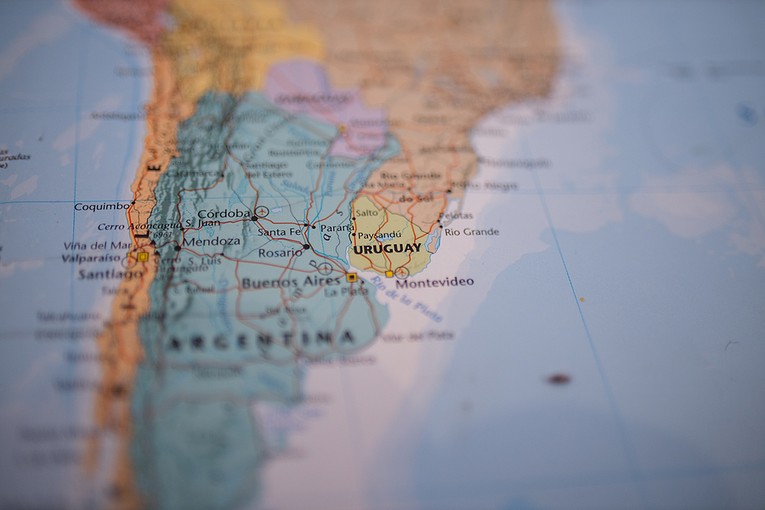 Qatar’s Stadium 974, so-called because it was constructed from 974 recycled shipping containers, is being dismantled.
Qatar’s Stadium 974, so-called because it was constructed from 974 recycled shipping containers, is being dismantled.
And in a clue as to where the 2030 World Cup might be held, it is reportedly being packed up and set to Uruguay.
Reportedly costing less than $200 million to build, Stadium 974, stationed in the Ras Abu Aboud district of Doha, played host to seven World Cup 2022 games, including Brazil’s 4-1 thrashing of South Korea.
The 40,000 capacity stadium was the flagship ‘green’ element of Qatar’s successful World Cup bid, with officials in the country claiming they didn’t want to be lumbered with a ‘white elephant’ – a venue built specifically for a major sporting event that has no purpose thereafter. That is often the case in World Cup and Olympic Games host nations.
The sustainable design of the construction, which features a modular steel frame onto which the shipping containers are slotted into place, and the ability to integrate cooling units makes the Lego-like venue ideal for use in hot climates.
The modular design also enables the construct to be broken down into smaller arenas or reused in full elsewhere, with the shipping containers used to house supporters and – as was the case with Stadium 974 – food stands and even the toilets.
Destinations in Africa were initially earmarked as potential recipients, but FIFA is thought to be keen on the idea of a ‘legacy’ venue hosting World Cup games in different continents, and so Uruguay could perhaps be the most likely destination instead.
Uruguay Bound?

If reusable stadiums become more commonplace, it could open the door for developing nations and those without the necessary infrastructure in place to bid for, and host, the World Cup in future.
And FIFA believe it could also lead to ‘pop up’ stadiums within major cities, which would reduce the need for fans to travel to out-of-town locations – again aiding the green credentials of the World Cup.
The governing body hope that other stadiums and clubs will donate seats in order to improve the usability of such constructions.
First things first, Uruguay could be the recipient of Stadium 974. They, alongside Argentina, Chile and Paraguay, are thought to be a leading contender to host the 2030 edition. The tournament will mark the centenary of the inaugural World Cup, which Uruguay hosted.
Other bids, from Morocco and a consortium of Greece, Egypt and Saudi Arabia, have been forthcoming, although Spain and Portugal’s joint bid has been hit after Ukraine, who they had welcomed on board as a co-host, saw their football association chief arrested over allegations of money laundering.
Uruguay is not the richest country on earth, and their stadium infrastructure has seen little in the way of investment in recent times. Only three stadiums in the country have a capacity of over 30,000, and each of them are in the capital city of Montevideo.
The former head of the Uruguayan Football Association, Wilmar Valdez, claimed that the country will have two host cities, Montevideo and Maldonado, although the latter currently has no stadium of note.
That, you suspect, will be the address that Stadium 974 is shipped to.

